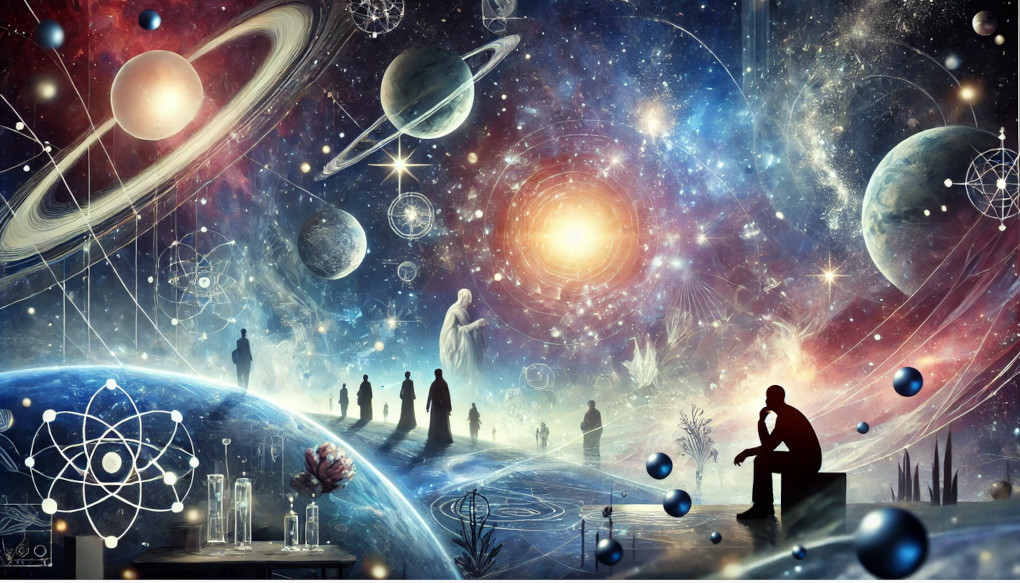Best YouTube channels on science and spirituality
February 7, 2026 - Reading time: 4 minutes

People understand the world by asking different kinds of questions, such as how things are made, why they exist, and what their original value and purpose might be. These questions can be approached through both science and spirituality, which address different aspects of the same reality.
Science asks how things are made—what mechanisms and laws govern them, and what predictions can be made. It has developed rigorous methods for extracting reliable knowledge about nature.
Yet for us, as humans, there are more questions to ask. In particular: what does it mean to be here? What is our purpose, and what gives things value? We reflect on these questions through inner experience and consciousness. Such questions are addressed through spirituality.
Your chances for monetization according to YouTube statistics
September 5, 2025 - Reading time: 3 minutes
According to this article, YouTube Stats, there are 114 million active YouTube channels. 321k channels have surpassed the 100k subscribers, according to statistical data. Only 10% of those can be monetized with more than 100$/day (ask ChatGPT for this number - it will pull a few reliable sources).
So, probability for monetization with >100$/day is 0.00028 (or 0.028%), after you created a new channel. This is about a probability to be killed in a city in the US (try to pull the number from the Internet, i.e. - homicide rate).
How Justapedia™ Stands Apart from Wikipedia
July 5, 2025 - Reading time: 3 minutes
In an age where digital knowledge is constantly evolving, Justapedia™ (https://justapedia.org) offers a fresh alternative to traditional collaborative encyclopedias like Wikipedia. While both platforms are rooted in open licensing and community contribution, Justapedia distinguishes itself through editorial independence, dynamic content development, and a commitment to preserving editorial history. Here's a closer look at how Justapedia is carving out its own identity in the world of user-driven knowledge platforms.
Top 6 Wikipedia Alternatives You Should Know About in 2025
May 13, 2025 - Reading time: 5 minutes

As of 2025, Wikipedia remains the world's largest information resource, maintained by communities of volunteers. In recent years, however, it has become increasingly restrictive, marked by a lack of meaningful community engagement, systemic biases, and tight control by users with administrative privileges.
However, there are also plenty of alternative wiki-style encyclopedias that follow somewhat different publication strategies. Other encyclopedic resources are usually smaller in size, but they are typically focused on specific areas of expertise. These are often managed by non-profit organizations or individuals with significant knowledge in their respective fields. In many cases, they also follow alternative content publication policies and have established dispute resolution mechanisms -both of which have become increasingly important for resources edited by large communities of experts.
Are You Truly Alive if This World is a Simulation?
March 17, 2025 - Reading time: 6 minutes

This story was created for the YouTube Video: Are You Truly Alive if This World is a Simulation?
There has been intense public debate about the nature of reality. Some philosophers, like Nick Bostrom, argue that future civilizations will be capable of running computer simulations in such vast numbers that the probability of us existing within one of these simulated universes is extremely high.
According to this hypothesis, our world is akin to a computer game - a simulation of a reality populated by conscious beings. It operates on a computational system that exists outside our perceived universe. This is not merely an abstract idea; multiple pieces of evidence suggest its plausibility.
Scientific Neo-Romanticism in the 21st Century
March 7, 2025 - Reading time: 3 minutes
Romanticism - also known as the Romantic era or movement - emerged in late 18th-century Europe as a profound response to the rationalism of the Enlightenment and the growing mechanization ushered in by the Industrial Revolution. More than a mere artistic trend, Romanticism was a sweeping cultural and intellectual force that reshaped literature, art, music, and philosophy.
Storyblok and Central Content Hub: Revolutionizing Content Management
January 28, 2025 - Reading time: 7 minutes
Considering that the world is digitizing quicker than ever and that creation and access to content are at the heart of operational efficiency and, subsequently, competitive advantage, something like the Central Content Hub becomes necessary for companies down the line as they inevitably establish larger digital assets. The Central Content Hub is the foundation of content operations efficiency based on intra-team communication, strategic planning, and inter-team efforts. Companies such as Storyblok are leading the way with new advances surrounding the Central Content Hub and beneficial integration.